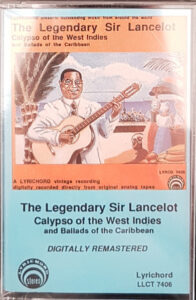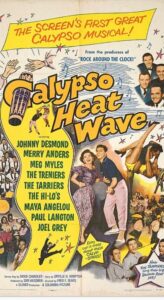Reading Time 5 mins
June 30, 2023
When I was five or six years old, my father brought home a portable record player for our home with several LPs. There were two or three by the Kingston Trio and one album by the Limelighters. They were both “folk” groups. These purchases reflected an intense and transitory popularity for a certain lusty, harmonized, guitar-driven music from 1958 to 1963.
The Kingston Trio is, for me, an historically interesting group. They were started by Dave Guard, Bob Shane, and Nick Reynolds. Shane and Guard grew up in Hawaii, attending the same prep school that Barack Obama would later participate in. They were 7-year-olds living in Oahu when Pearl Harbor was attacked. Guard and Shane learned the ukulele at school and knew Hawaiian and Tahitian music. Nick Reynolds was from San Diego, California. His father was a Navy Captain and returned from his travels with songs from around the world. They met around Stanford University and started playing for parties and at bars. Initially, their focus was on Calypso, following the success of Harry Belafonte’s “Calypso” LP.
They moved on to nightclubs in San Francisco and then a recording contract with Capital Records (at that time, also the label of Frank Sinatra and Nat King Cole). They had a hit single, “Tom Dooley,” in 1958 and started producing hit LPS. By November and December of 1959, four Kingston Trio albums ranked in the top ten of Billboard’s Top LPs chart, something that has not been matched since.
But, for me, what is cool about the Kingston Trio—one of their members would put down his guitar on Zombie Jamboree and start beating the conga drum. Also, there is one track of theirs of an African folk song on which Mongo Santamaria and Willie Bobo (significant Cuban percussionists) play.  Dougherty and George Grove (a Kingston Trio member for 40 years) found a third folk singer with credentials and formed the Folk-Legacy Trio. They play some of the Kingston Trio’s repertoire and songs by Peter, Paul, Mary, Paul Simon, Harry Belafonte, and Bob Dylan.
Dougherty and George Grove (a Kingston Trio member for 40 years) found a third folk singer with credentials and formed the Folk-Legacy Trio. They play some of the Kingston Trio’s repertoire and songs by Peter, Paul, Mary, Paul Simon, Harry Belafonte, and Bob Dylan.
At different times, I have tried to learn to play the bongos. I once took a continuing education course at Stanford University about the music of the Caribbean, thinking they would touch on Calypso. It dealt exclusively with the history and development of Afro-Cuban music. I remember (around 2002) that Sparrow would play in San Francisco at Caribbean SummerFest. I told the instructor of the class, a respected jazz and salsa trombone player, that Sparrow would play. The instructor was polite about the news but unexcited.
However, I occasionally find evidence of Calypso or West Indian influence in pop music and American pop culture. There is an episode of the sitcom “Father Knows Best” called “Calypso Bud” in which the family’s son, Bud, learns to play the bongos to be popular at parties. The episode aired in 1958 and coincided with Calypso’s popularity in the United States. Watching the episode, I was impressed at how well Bud played the bongos. However, once you get to the episode credits, Sir Lancelot, a Trinidadian, is listed as a technical advisor and the voice on Bud’s instructional record.
So, I looked up Sir Lancelot and learned he was born Lancelot Victor Edward Pinard in Cumuto, Trinidad. He came from a well-off family, attended only parochial schools, and participated in the opera with his family. As a young man, he studied to be a pharmacist, and his family sent him to New York to study medicine. After hearing a concert by the African-American lyric tenor Roland Hayes, Pinard gave up medicine to study singing and music, performing classical works. Eventually, he included Calypso in his performances and became a full-time singer.
He became popular in New York (playing at the Village Vanguard) and went to Hollywood, where he appeared in more than fifteen movies. He was in “To Have and Have Not,” playing a deckhand on Bogart’s sport fishing boat. He is credited with playing the first calypso song (“Shame and Scandal”) in the movie “I Walked with a Zombie” and appeared in a 1967 episode of The Andy Griffith Show. Interestingly, Harry Belafonte acknowledged him as an inspiration, and in 1964, the Kingston Trio recorded their version of Sir Lancelot’s “Shame and Scandal.”
Pinard was a professional Trinidadian working in the US—New York and Hollywood. He also worked in Europe for a time in the fifties. In learning about Kitchener and Sparrow, I understand that their popularity is based in Trinidad and the Caribbean, and without any Caribbean contact, one might never hear of them. But a strain of calypso performance has existed in the United States, where a man could make a living representing his Caribbean identity in movies, night clubs, and TV. And that’s how Bud comes to play a calypso rhythm on his bongos.
This also makes me think of Irving Burgie, another long-lived entertainer/composer of West Indian heritage. He was born in Brooklyn in 1924 to a Barbadian mother and a father from Virginia. He wrote 34 songs for Harry Belafonte, including eight of the 11 songs on the “Calypso” album. As a songwriter, he set up his own publishing company, and by the late 1950s, he could live comfortably off his royalties and funded a Harlem magazine, The Urbanite.
Looking at the writing credits on some of my Kingston Trio albums, I see that Burgie didn’t write calypsos exclusively; he could turn out a credible “folk” song as well (“El Matador,” “The Seine”). He wrote the lyrics to the National Anthem of Barbados. His mother’s Bajan roots must have counted a lot for him as “one of the greatest composers of Caribbean music,” born in Brooklyn and died 95 years later in Queens, NY, in 2019. It is interesting to me how inclusive calypso/Caribbean music is. The Folk-Legacy Trio’s repertoire includes Lord Burgess’s “Jamaica Farewell.” Although they don’t credit his authorship, they reference the Caribbean.
*Big Drum Nation wishes to extend deep gratitude to Jeff, whom we initially met after he flew into New York City to attend Sparrow’s 2020 Lincoln Center performance.
A lifelong musician, Jeff McNish worked for Club Med from 1977 to 1982, teaching sailing in Martinique, Guadeloupe, the Dominican Republic, Tunisia, and other places. He sailed in the Caribbean in 1995, 2001, and 2016 and had the good fortune of participating in Carriacou Parang with the BBH Serenaders in 2001, 2004, 2007, and 2013. Currently, he cares for his three children—ages 17, 15, and 13—and plays music in the San Francisco Bay area. McNish is also the author of “Penguin Blog, West Indies: January-June 2016.”


